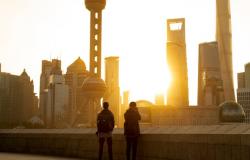
Has the deepening of China's involvement with the United Nations (UN) actually led to significant China-related shifts in power at the UN over the last three decades? This article explores this question in relation to the UN's move in the post Cold War era into a period of greater normative ambition that made the protection of the individual central to its efforts to maintain international peace and security. Conceptually, the article utilizes and adapts the four power types put forward by Barnett and Duvall (2005). Empirically, it draws on some core elements of the UN's expanded liberal normative agenda relating to the security of the individual. The article explores Beijing's attempts to revise or reverse the UN's liberal turn, assessing the extent to which China has been able, in the process, to effect a power shift. It concludes that China has had some, but as yet limited, successes. However, Beijing seems set to continue to be associated with the various types of power discussed here to press its case.
Policy implications
- UN bureaucratic actors need to reflect more fully on how well embedded post-Cold War era norms are, and how a broader basis of support for valued norms can be developed across geo-political divides.
- UN bureaucratic and political actors should be attentive to the forms of power that China and other major states use and that result in the ‘followership’ that they sometimes enjoy.
- China and other UN member states sceptical of the UN's focus on individual security should be encouraged to flesh out how the UN can more effectively deal with a member state that manifestly fails in its protective duty.
- Western and Chinese scholars should be encouraged to re-engage in track two debates on the UN's role in individual security provision to uncover potential areas of state-to-state policy cooperation.
Photo by Saunak Shah